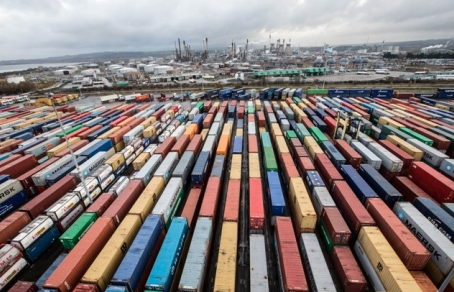The downturn in the Scottish private sector “eased noticeably” in July with clear signs that the economy is approaching stabilisation, according to the latest Royal Bank of Scotland PMI (purchasing managers’ index).
The seasonally adjusted headline Royal Bank of Scotland Business Activity Index — a measure of combined manufacturing and service sector output — registered 49.3 in July, rising from 37.1 in June, and signalled the softest fall in private sector output since the current downturn began in March.
The total gain in the index following April’s nadir is now nearly 38 points.
At sector level, manufacturing order books “rose solidly” while services firms registered a fifth successive reduction in new work.
Sentiment with regards to activity over the year ahead remained positive for a third consecutive month in July.
Moreover, the level of confidence among Scottish firms strengthened to a five-month high.
“Anecdotal evidence linked optimism to hopes of an economic recovery once lockdown measures are lifted, with many panellists expecting the release of pent-up demand to drive sales,” said the report.
“A sixth consecutive reduction in Scottish private sector employment was recorded in July.
“Temporary business closures and weak demand conditions amid the COVID-19 pandemic were frequently cited as reasons behind the latest fall, although there were further mentions by panellists of use of the government furlough scheme.
“The rate of job shedding was the slowest since February, but still marked overall.
“The fall in staffing numbers was broad-based at the sector level with services again registering the sharper decline, although both segments saw the rate of job shedding ease from June …
Malcolm Buchanan, chair, Scotland Board, Royal Bank of Scotland, said: “July data highlighted some encouraging signs that the Scottish private sector is approaching stabilisation.
“There were further reductions in activity and inflows of new business, but the declines were the softest since March and only slight, with some respondents noting that looser COVID-19 related restrictions had resulted in slightly improved demand conditions.
“Firms also remained optimistic with regards to output over the coming 12 months.
“Confidence was the highest since February, with panellists linking positive expectations to hopes of an economic recovery.
“Although July’s figures are a significant step in the right direction, we are still yet to see growth.
“A possible ‘second wave’ of the pandemic and reintroduction of lockdown measures has the potential to derail any further moves towards a recovery.”
